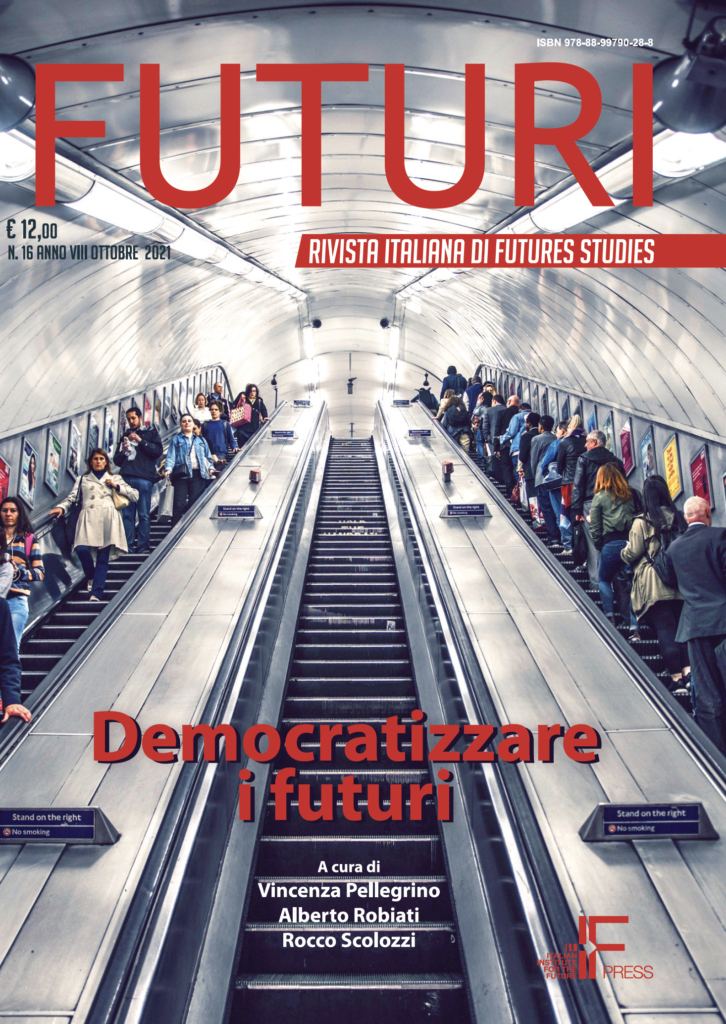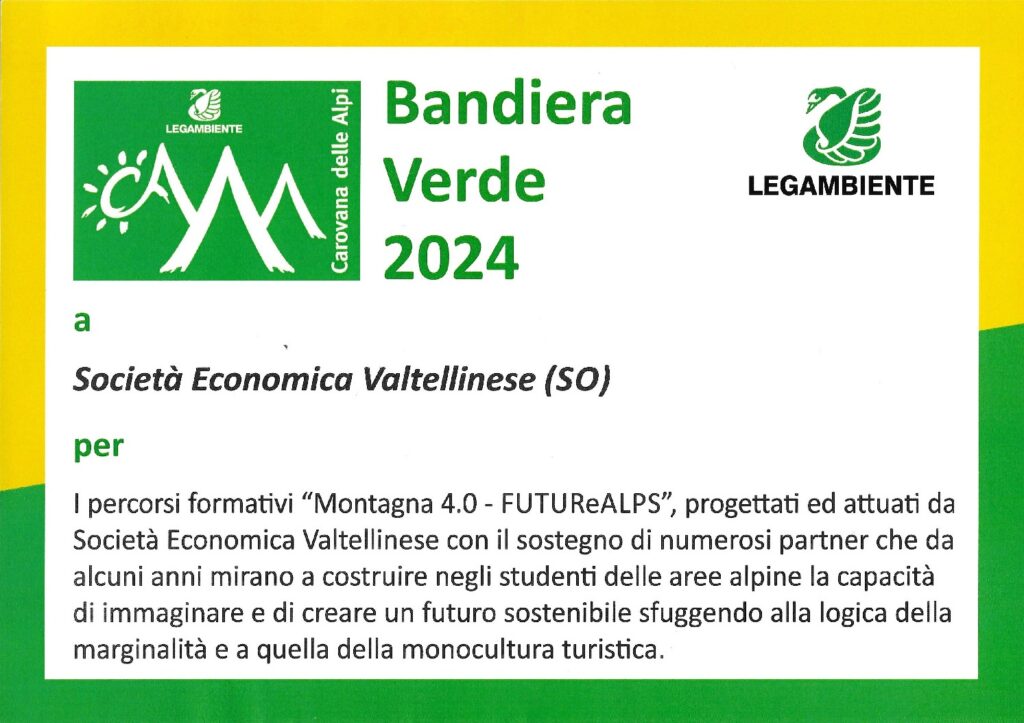Montagna 4.0 Future Alps is a project promoted by the Società Economica Valtellinese (SEV) and the winner of the 2024 Legambiente Bandiere Verdi award. It demonstrates how participation and a collective vision of the future can converge through Co-Design for the benefit of Alpine communities.
Challenges of the Alpine Macroregion
As described in the article by Maria Chiara Cattaneo, Rocco Scolozzi, and Elena Enrica Giunta for Futuri Magazine, the mountains, particularly the Alpine macroregion, face complex challenges that put local communities to the test.
These challenges include economic development difficulties due to geographical and political factors, which hinder the full exploitation of natural and cultural resources, as well as depopulation and accelerated aging, which exacerbate the imbalance in job opportunities and service availability between urban and mountain areas. Additionally, climate change, global megatrends, and increasing tourism demand, often in contrast with environmental protection and local development needs, add further complexity.
In this context, the Future Alps project aims to promote the sustainable development of the Alps through a participatory approach that actively involved local communities in the Valtellina, in northern Italy, in a Co-Design process utilizing Design Thinking and Future Studies methodologies.

A new approach to participation and innovation
Through collective design, Montagna 4.0 Future Alps editions 2020/21 and 2021/22 have raised awareness among the Valtellina community about present and future local changes, fostering a common reflection on sustainable development trajectories.
To this end, Studio SHIFT involved high school students, teachers, businesses, and local stakeholders in a series of six workshops, each divided into three sessions, held from September to December 2020.
Through creative workshops, participatory foresight, intergenerational dialogues, and open talks with experts, the workshops addressed specific topics such as the future of the mountains, sustainable and social innovation, events for Alpine tourism, and activities for the protection, production, and promotion of the territory.
This collaborative approach helped identify sustainable development strategies, using tools like scenario matrices of uncertainty and postcards from the future to make the identified strategies more realistic.

Results of the Future Alps project
The Future Alps project has produced a series of significant results, including:
- Increased awareness of ongoing changes and future opportunities among local communities;
- A shared vision of the future of the Alps based on the values and resources of the territory;
- The definition of concrete and actionable sustainable development strategies.
The project thus represents an example of how, through participatory design and future studies, education and community participation can be experienced beyond mere consultation, leading to tangible and positive results for the entire community. The initiative has also demonstrated the importance of engaging different generations in constructive dialogue, overcoming barriers between young and old to build a sustainable future together. The active participation of students, in particular, has shown that young generations can be a valuable source of ideas and innovative perspectives.
Some significant numbers:
- Over 300 students from 10 different high schools involved;
- 70 local stakeholders engaged, including municipalities, businesses, and civil society organizations;
- Hundreds of participants in the thematic evening open-talks (held in hybrid mode);
- Over 80 “Postcards from the Future” from the Alpine arc of 2040;
- One Radar scheme (backcasting) from 2040 to today, with ideas and strategies to achieve the desired change;
- One Technical Report for local institutions, with concerted “guidelines” for development;
- Over 80 entrepreneurial ideas generated.
Future Alps offers a replicable model for other communities, both Alpine and beyond, promoting a collective and forward-thinking approach to change and sustainable development, giving citizens the opportunity to build their desirable future. As designer Shawn Wolf stated, “If you are involved, you are co-responsible for the decision-making process.”
